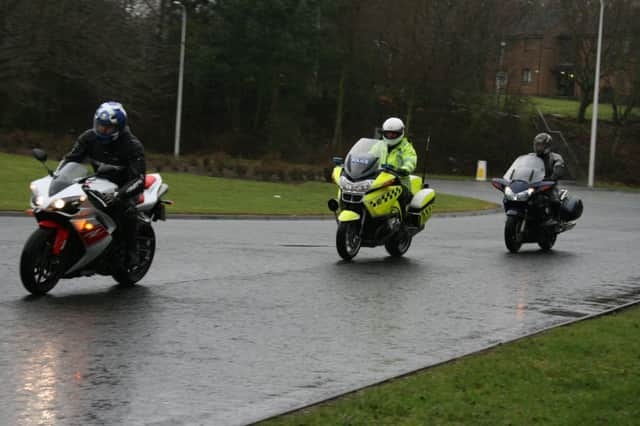Alastair Dalton: Bikers must think of risks


IT IS high season for organ donors on Scotland’s roads. The doctors’ description of motorcyclists reflects the fate of all too many of them. On average, one a weekend is killed every summer.
Bikers know if they crash into anything, they are very likely to come off worst, whether it’s a tree, a road sign or another vehicle. Two have died so far this week alone – in Stirling on Monday and Strathcarron the following day.
Advertisement
Hide AdAdvertisement
Hide AdFor many motorcyclists, the risks are part of the appeal of biking. They take great pride in their machines – and their own perceived skill as riders.
But some seem less aware of the risks they pose to others on the road, particularly car drivers.
A fast-accelerating motorbike zooming up close behind a car and suddenly overtaking can be a frightening and unsettling experience for the driver. But that reaction can then switch in an instant to anger when the danger posed to both – and other – vehicles is realised as the biker narrowly dodges oncoming traffic.
It’s even worse on twisty, undulating rural roads with limited sight lines. Such behaviour may even prompt drivers to think twice about using that road again if they can avoid it – especially those routes beloved by bikers because of their challenging geometry. For those travelling with children, such instincts may be doubly reinforced.
However, potentially the most devastating consequence of motorcyclists’ reckless behaviour is the effect of colliding with another vehicle on the other driver. Even if the driver escapes the crash unscathed, memories of the incident are likely to stay with them for the rest of their life.
But the psychological trauma will be far worse if the biker is seriously injured or even killed. However clear-cut the cause of the crash, an entirely innocent driver is likely to feel a sense of responsibilty, if not guilt, that they could have acted somehow to avert it.
Police Scotland say the “don’t do it/don’t risk it” approach to trying to educate motorcyclists to ride more responsibly doesn’t work. It has focused instead on highlighting specific advice that bikers might pick up on, such as the dangers of left-hand bends.
But coupled with this, the force has launched an offensive on roads with a high number of collisions and speeding involving motorcyclists.
Advertisement
Hide AdAdvertisement
Hide AdIt says that with the ability to now deploy motorcycle police across the country that were previously restricted to the old regional force areas, the chance of being caught has never been higher.
Drivers already know the risks of being stopped for offences such as drink-driving have increased. Bikers need to be shown they are under equally close scrutiny.